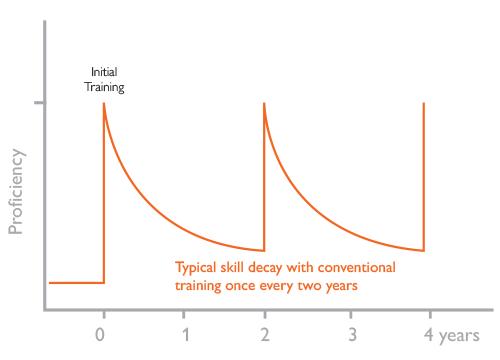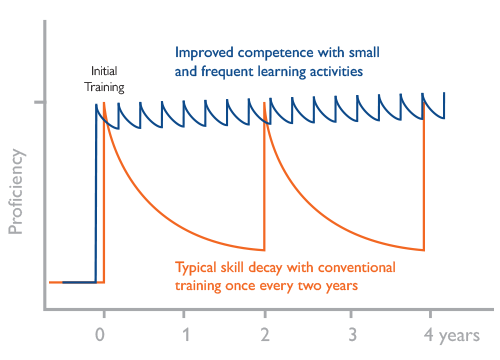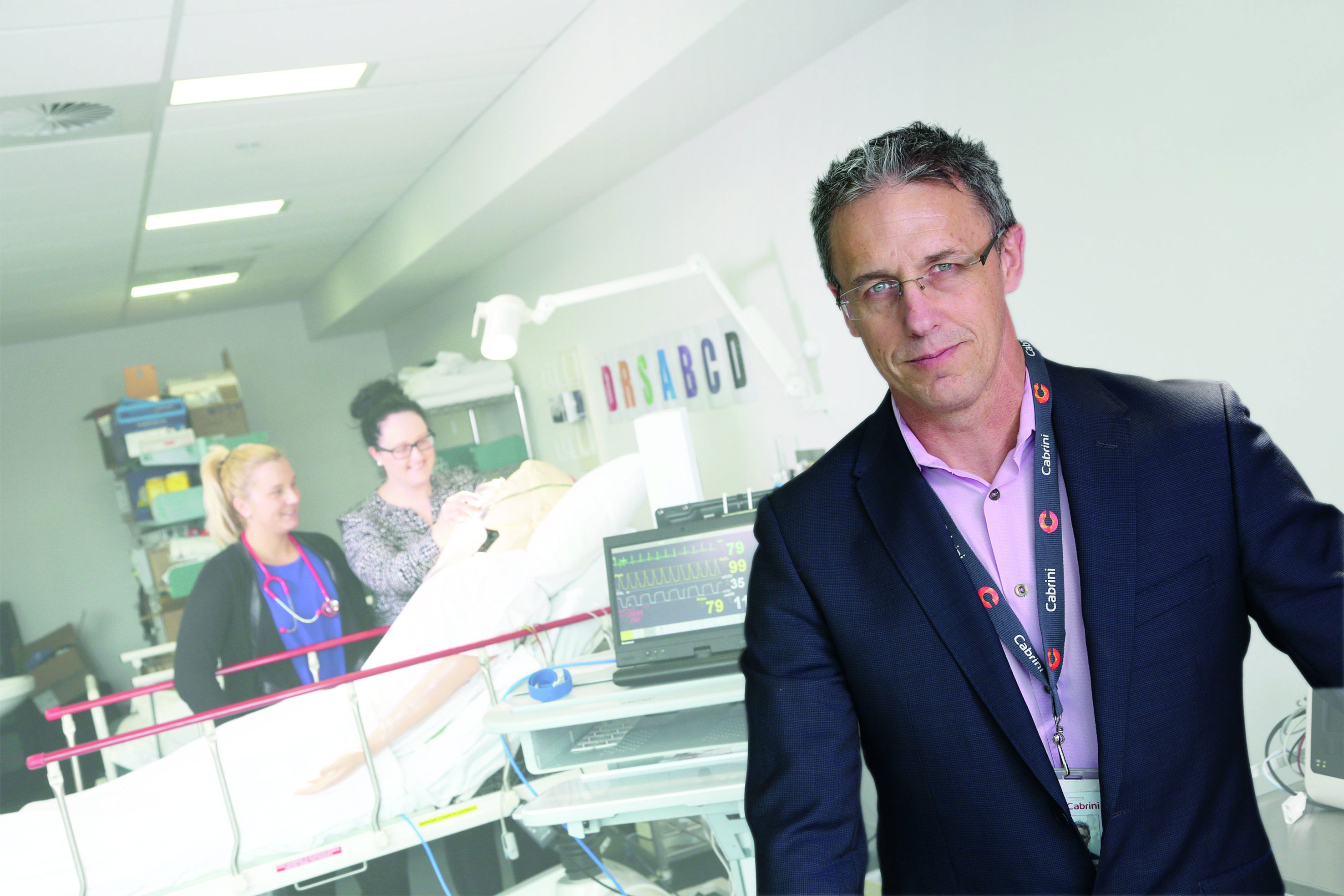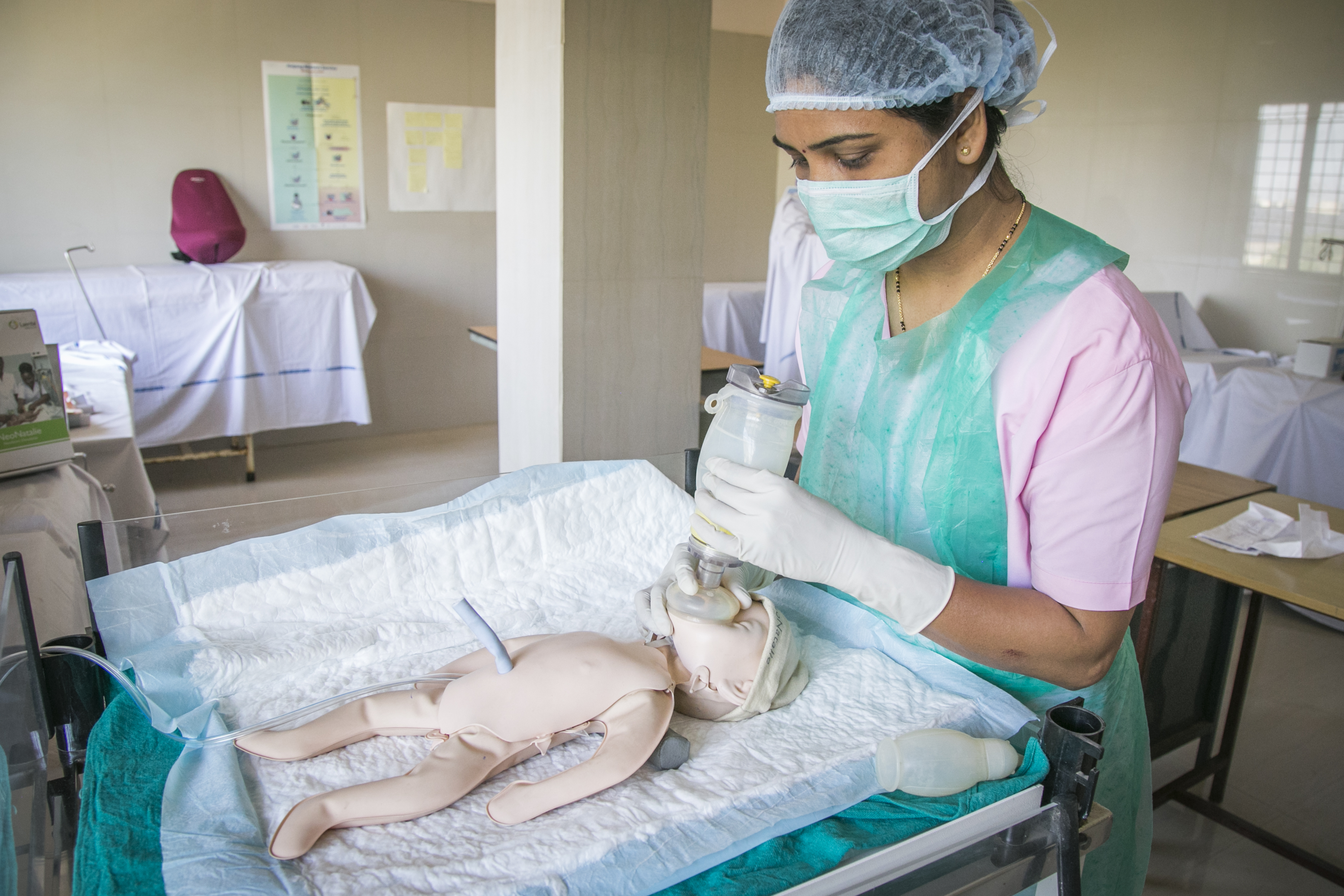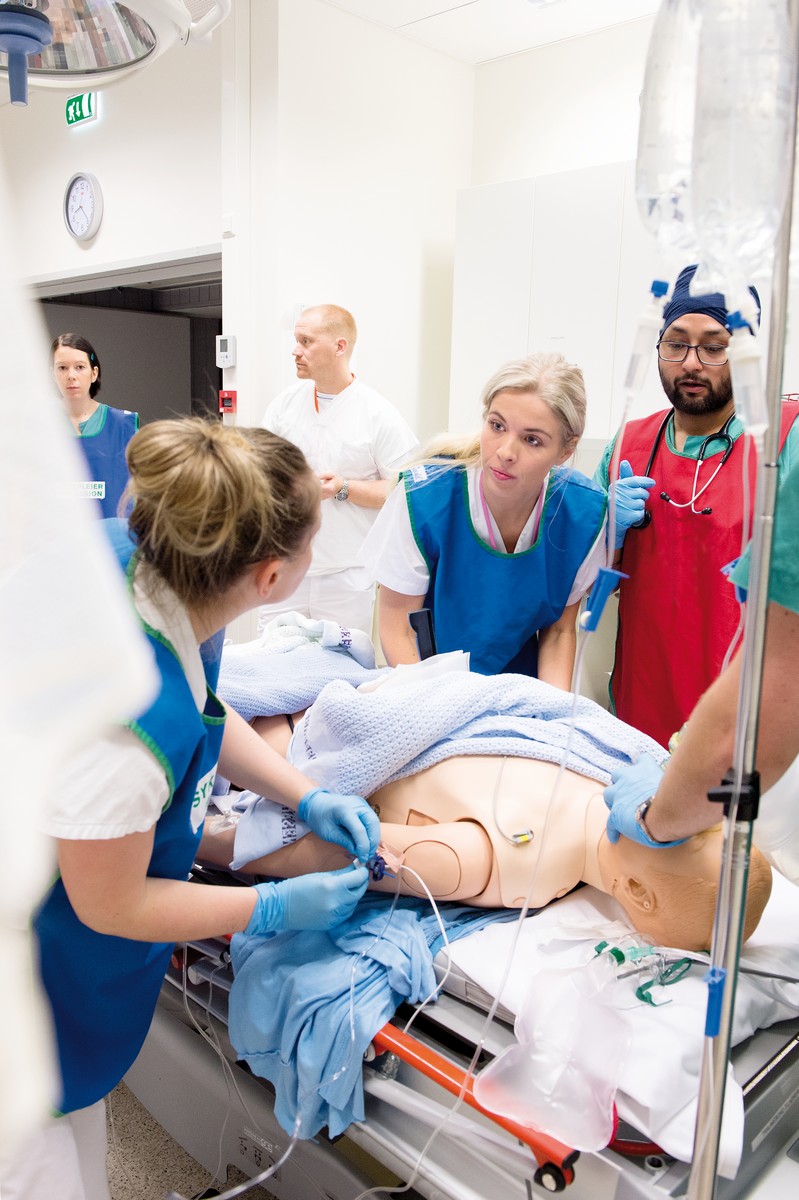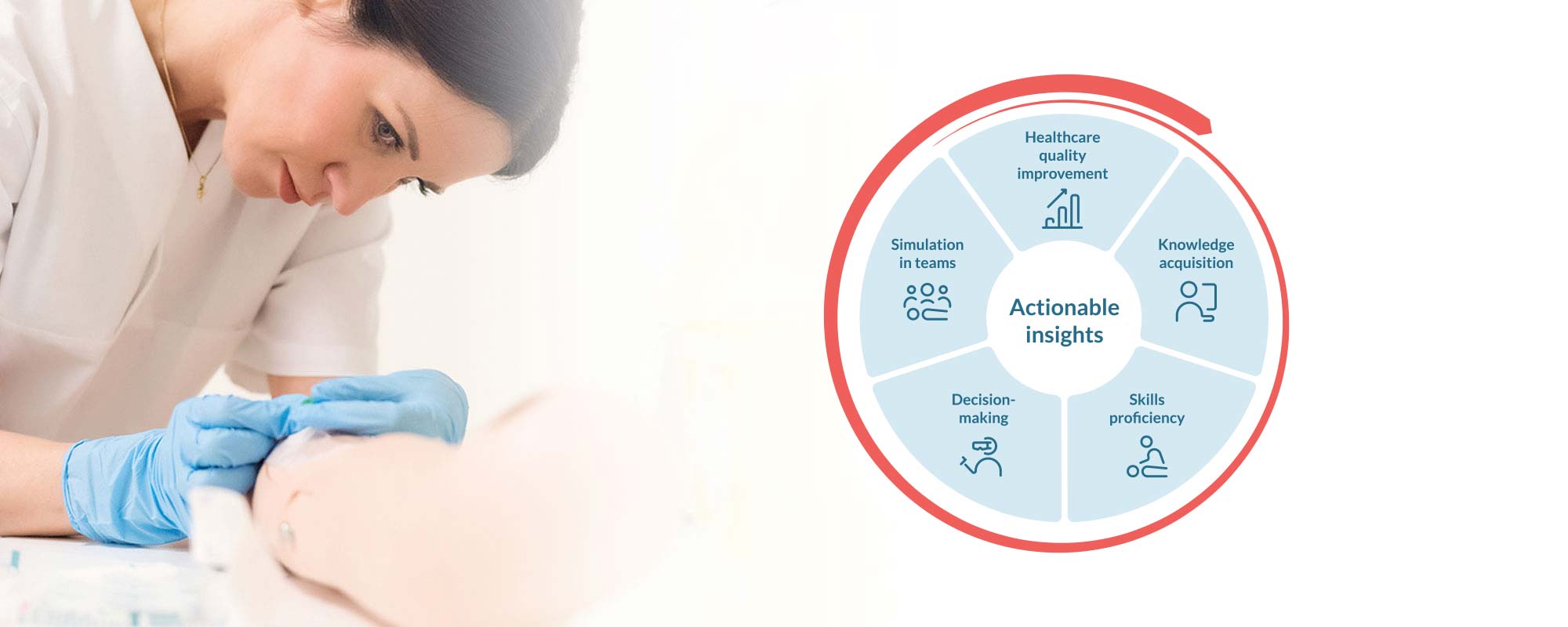Helping Babies Breathe (HBB) is a program designed to reduce neonatal mortality in low and middle income countries. It is an evidence-based hands-on program to teach the initial steps of resuscitation within the first minutes of life.
When first introduced at a rural Tanzanian hospital as a one day training course, the number of healthcare providers passing the simulated “routine care” and “neonatal resuscitation” scenarios increased after HBB training; from 41 to 74% and from 18 to 74% respectively. However, this increase in knowledge did not transfer into clinical practice. The number of babies suctioned and/or ventilated at birth did not change, and the use of stimulation in the delivery room decreased after HBB training. These results compelled the question: How can improved knowledge be transferred to clinical practice – where it really counts?
To answer this question, HBB simulation training was implemented as weekly 3-minute practice sessions and 40 minute monthly re-training sessions. This new method of low-dose high-frequency training showed both a positive effect on transfer of new knowledge and skills into clinical practice, but most importantly, resulted in a 40% reduction in neonatal mortality.
